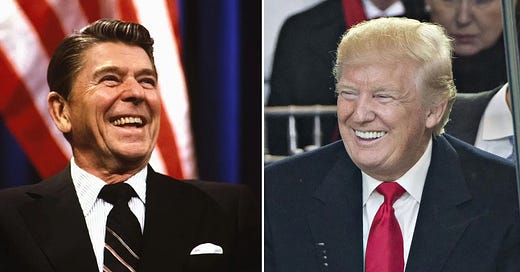Reagan, Reykjavik and Real Free Trade
Lessons to be learned from the past master.
by Rod D. Martin
March 8, 2018
True free trade means ending all trade barriers. That exists among the 50 states. It doesn't exist between us and anyone else, not even our NAFTA partners. What does exist is at the very least, shall we say, less than free. And too frequently it was poorly negotiated and skewed against the United States.
Those of us who believe in actual free trade would do well to learn from history.
In the 1980s, Democrats were apoplectic when Ronald Reagan refused to continue the fake "arms control process", which in two prior treaties -- SALT I and SALT II -- had given the Soviets the right to massively expand their nuclear forces while restricting ours. This is Washington's idea of "progress" and "a good deal". Reagan had the temerity to say that emperor had no clothes, and refused to play the game. For this he was branded a crazy incompetent drooling warmonger racist Nazi.
And then he got the Russians to sign two real arms control treaties, one (START I) that dramatical…




